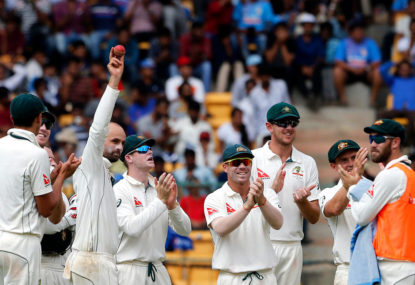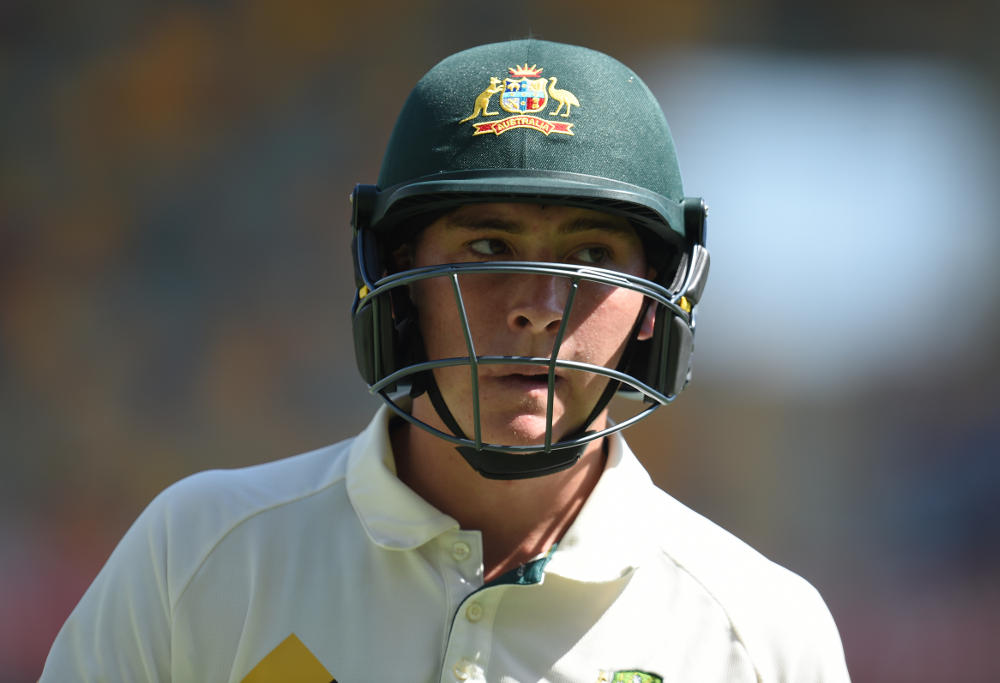World Cup chances up in the air but Smith makes Major call on T20 future, Green dumped despite huge IPL deal
Test great Steve Smith is to play for Washington Freedom in the second season of Major League Cricket as the Australian influence in the…

Australia and India have signed an historic peace treaty that has brought to a close days of conflict following the bloodshed of the second Test in Bangalore.
The deal was struck after a tense negotiation period of accusations and counter-claims, with a truce eventually brokered via the olive branch of 25 additional one-dayers following the current series.
Despite the ceasefire, an air of unease remains. Both parties privately bemoaned the agreement’s restrictive parameters while maturely flipping each other the bird under the negotiation table.
However, the deal has been hailed a success by a range of notable international diplomats, with the General Assembly of the UN and Michael Clarke labelling it ‘good’.
The treaty covers all facets of the working relationship between the nations, with guidelines addressing acceptable wartime conduct, bureaucratic practices and dem dolla dolla biiills.
Cultural differences
The cultural differences of both sides must be respected. Translated, this means both must honour each other’s right to sinfully slander the other in their chosen dialect, while retaining licence to indemnify against censure citing ‘language barrier’.
Sledging
Fielding sides are no longer permitted to perform send-offs at the fall of a wicket, especially prohibited is instructing a batsman to “f*ck off” 12 times, as Virat Kohli has applied for trademark.
In addition, all reference to reptiles is now banned. Metaphorically cutting the head off a snake was agreed as figurative animal cruelty. In addition, poor analogising. As the best player on the team, the captain would be expected to perform more ably than an animal with no arms or legs.
Unless, of course, that captain was the satanic serpent incarnate. As such, Australia have been granted headway.
Timeliness
Indian batsmen have agreed to now request new gloves every five overs instead of three, on the proviso Australia continue to force matches past three days.
However, Indian captains have retained the right to attend the toss as late as they fricken well please, because “upsetting Steve Waugh will never get old.”
Decision Review System
The DRS will remain until such time it ceases to be funny, incensing and/or faulty.
Should this not be adhered to, India reserve the right to immediately abandon the tour, while Australia reserve the right to do whatever is best for India.
Cheating
Cheating is now prohibited. This includes indirect cheating via mode of fading brain and the accusation of cheating without actually saying ‘cheating’. Scummy pitches and tactical poops are to remain.

Administrative conduct
Both controlling bodies agree to conduct business in a manner befitting the Spirit of Cricket. That being, the financially-carnivorous fashion that rapaciously devours the rest of world cricket, as originally agreed upon in their Big Three executive stranglehold of the ICC.
Penalty clause
Agreed sanctions for contravention of the treaty are as follows: Australia hold the right to export Greg Chappell to India to resume coaching, India hold the right to abolish cricket.